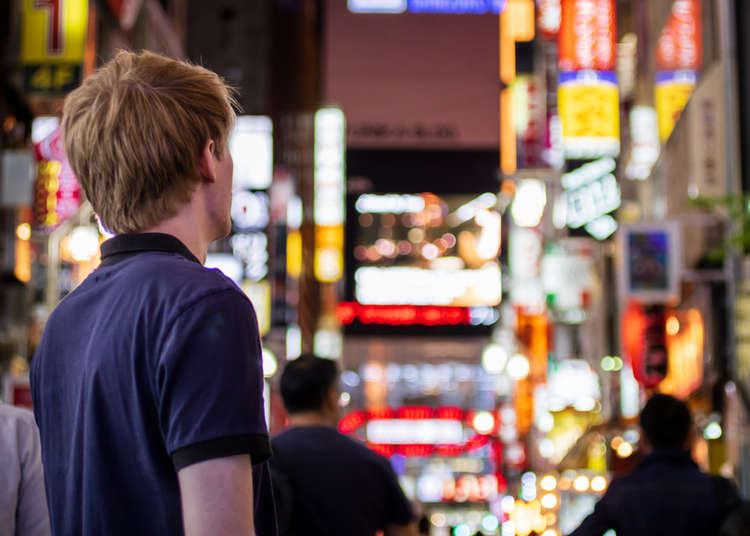
First Time in Tokyo: 3-Day Tokyo Itinerary for Japan Beginners
- Written by: David McElhinney
Tokyo is one of the best, most entertaining, most enchanting, yet hopelessly confusing, cities for first-time visitors. I know that your time is precious, and the race against it to tick everything off your Japan bucket list can be overwhelming.
But, with this three-day itinerary, you can see some of our top Tokyo highlights, easily navigate your way around the matrix of Tokyo's train system, and indulge in a healthy dose of local entertainment, classic regional cuisine, and retail therapy – yet still leaving some wiggle room for a little self-exploration and spontaneity!
Where to Stay: Ueno

Ueno, a sprawling neighborhood in eastern Tokyo is incredibly well connected to the rest of the city (and beyond) via JR, Metro and inter-city express train lines. There are a host of hotel chains (from cheap to not so) along with several budget hostel options. And you'll have plenty to do right on your doorstep in Ueno park, Ueno Zoo, the neighboring complex of museums and art galleries, and acres of high-rise shopping malls.
Accommodation and Transport
For those travelling beyond Tokyo, consider the Japan Rail (JR) Pass; a one size-fits-all ticket for tourists in Japan. On the flip side, If all you want is a convenient way of getting around the city, purchase either a Suica or Pasmo card, which can be used on all Tokyo trains, and subsequently refunded at the end of your trip.
Day One
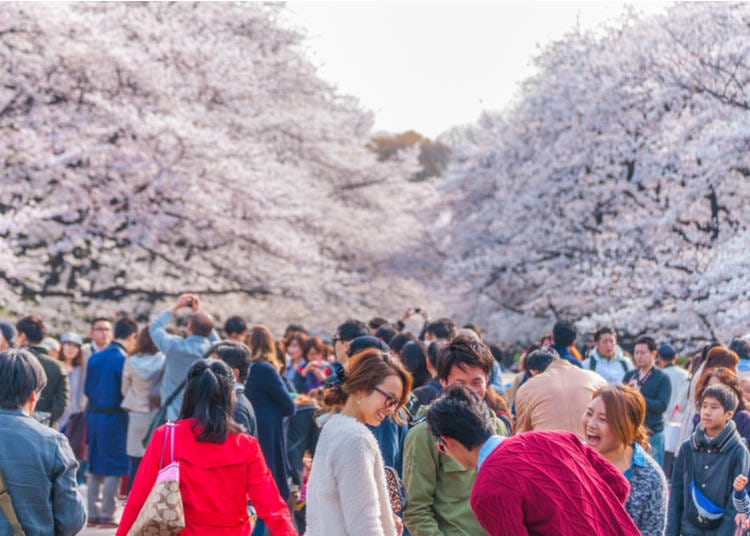
10am – 12.30pm (Ueno)
Breakfast time on your first day in Japan, exciting stuff! But unfortunately, many food places don't open for business until later in the day. Popular chain restaurants and convenience stores will operate around the clock, but if you want something more traditional (grilled fish, miso soup, tamagoyaki, steamed veg) consider booking a hotel with a breakfast buffet option.
If the weather is on your side – and especially if the spring cherry blossoms are out – a walk around Ueno Park and the Shinobazu Pond is a perfect way to kick off your day. They are a great introduction to the neighborhood, showcasing the often-understated natural beauty of Tokyo's greenspaces.
If you’ve still got a little time to spare, check out Ameyoko shopping street; an open-air market street with a plethora of shops selling traditional goods and sweets.
12.30pm – 1.30pm (Lunch):
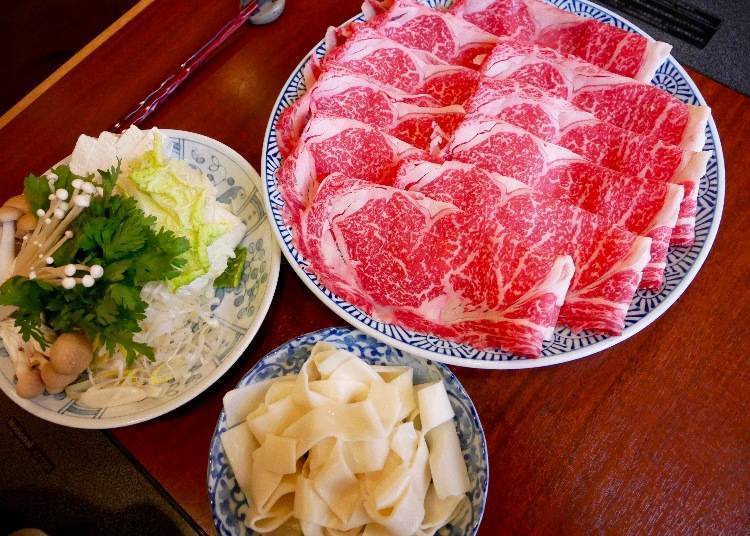
Ameyoko may take your fancy for lunch too. There are several shops specializing in Wagyu beef around Ueno, with Hachinoki in Ameyoko being one of the best and most venerated around. The shabu-shabu and sukiyaki – traditional beef hotpots – are particularly good.
1.30 pm – 5pm (Akihabara):
Next, shoot on over to Akihabara via the Hibiya metro line, just two stops from Ueno. As you're probably aware, Akihabara is Tokyo's geek haven. It's the epicenter of all things Japanese pop culture, as is evident in the establishments that populate its rainbow-draped main street, Chuo Dori: world-renowned arcades, maid cafes and retro video game stores are topped only by the anime merchandise chains, and monstrous towers filled with manga comics on every shelf. Plus, there's a tantalizing selection of souvenir stores dotted around the neighborhood. How long you want to get lost here is at your own discretion, but a few hours should give you ample time to see most of the highlights.
5pm – 9.30pm or later! (Shinjuku and the Robot Restaurant):
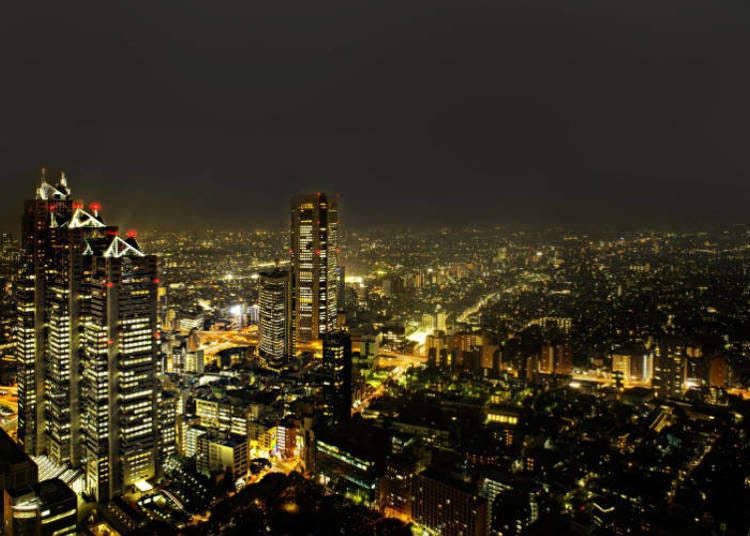
Now head to Shinjuku via the JR Chuo Sobu train (approx. 25 minutes). Shinjuku may be the most famous of all Tokyo's districts. It's a nightlife hub that’s filled with exceptional cuisine, striking architecture, and an electric atmosphere accentuated by massive LED screens, and swarms of people around the clock.
Juxtaposing the area's modern environs, Tokyo's Samurai Museum is located nearby, offering an in-depth insight into the history of Japan's famous warrior clans from history (plus, it's open until 9pm if you want to head there a little later in the evening.)
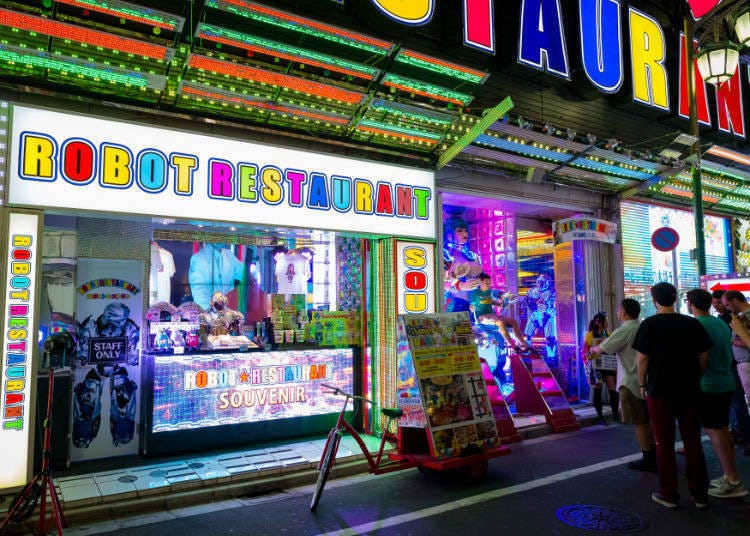
Once you're ready, the Robot Restaurant is a great dinner entertainment option. The nightly shows start at 7.30pm and 9.30pm respectively, so if you’d like to sample some Japanese dishes in the area, giving yourself an hour or so beforehand is a good idea. Otherwise, you can choose the bento meal option and watch the show alongside your classic Japanese dinner. The live performances are a barrage on the senses, with cascading lights, a pumping soundtrack, smoke machines, and dancing robots.
If you've got room for a little more action before bed, there are plenty of places around Shinjuku to enjoy beer, karaoke, more food, or all of the above.
Day Two
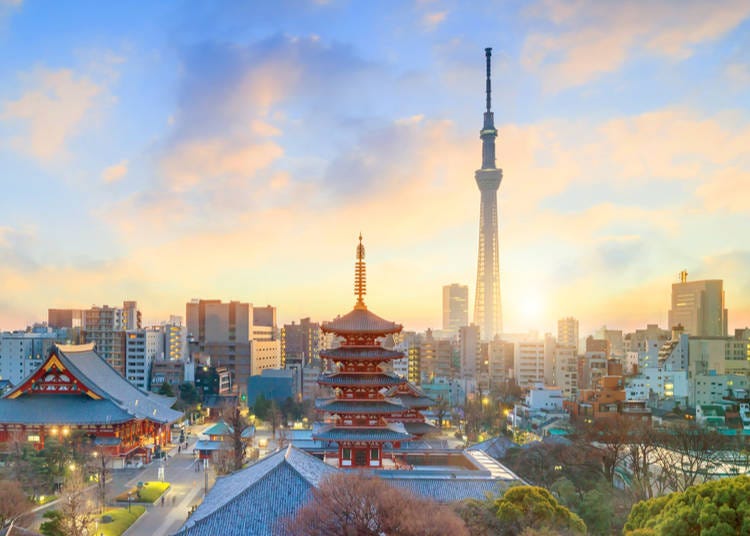
9am – 11.30am (Tokyo Skytree):
Once you have had breakfast, make your way to Oshiage Skytree Station via Asakusa. First take the Ginza line to Asakusa then change to the Asakusa line (total 20 minutes). The reason you are here is to check out Tokyo's tallest building and the highest free-standing tower on the planet: Tokyo Skytree.
The structure rises 634 meters into the air with two observation decks providing stunning panoramas of the Tokyo urban sprawl. The lobby has some impressive dynamic artwork, while the lower floors are filled with a variety of shops and restaurants. We certainly recommend you make the journey to the top however; you'll struggle to find a better view anywhere in the city, and on a clear day you'll get a cracking shot of Mount Fuji.
11.30pm – 1pm (Asakusa):
Retrace your steps now to Asakusa station, just next door to Tokyo's oldest, and probably most celebrated temple, Senso-ji. It's a gigantic edifice of brilliant red wood, with a buzzing courtyard and a long Edo-style market street leading towards it's torii gate entrance. You should have plenty of time here to wander around the open temple precinct and grab some washi paper fans and local lacquerware souvenirs (if you're so inclined).
1pm – 2pm (Lunch):
There are plenty of great lunch options in Asakusa, whether you want street food bites – aji fish skewers, corn on the cob, takoyaki octopus balls – or a sit-down restaurant experience. Asakichi serve Osaka soul food, oknomoiyaki and monjyayaki, or you can go for something a little more refined in Sobamae, where tempura and buckwheat ("soba") noodles are the order of the day.
2pm – 3.30pm (Tokyo Station and Imperial Palace):
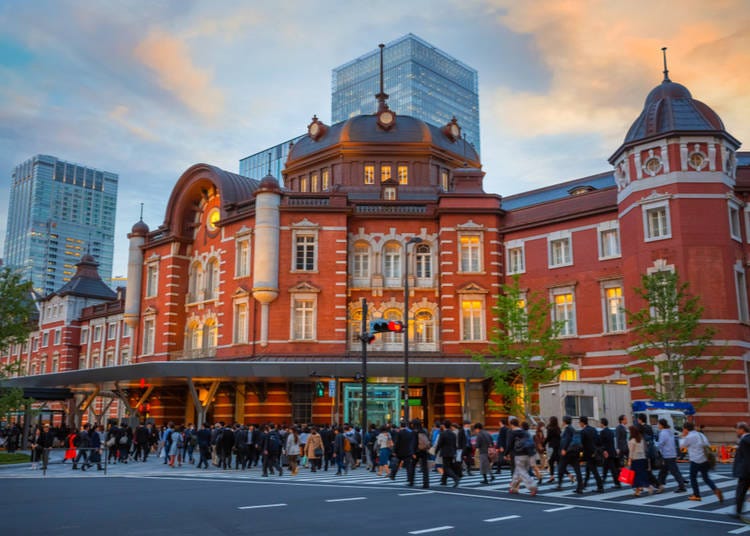
Now it's time to head for Tokyo Station in the center of the city (Asakusa Station to Akihabara Station on the Tsukuba express line, followed by the Yamanote line to Tokyo Station; total 20 minutes).
The Imperial Palace, the center of old Edo and still home to the Emperor of Japan, sits just to the west of the station. A quick glance at any map of Tokyo will give you an indication of just how big the Palace grounds are, but unfortunately the amount of it you can explore is somewhat limited (it is someone's residence at the end of the day!). However, it is worth a quick jaunt nonetheless, to see the humble epicenter from which this great city began.
3.30pm – 6pm (Odaiba, teamLab Borderless):
From the Imperial Palace walk to Shimbashi Station and take the Yurikamome line to Odaiba in the Tokyo Bay area, home of the digital art collective, Team Lab's, Borderless interactive exhibition. Give yourself 30 – 40 minutes to get there and locate the building; precise locations are invariably difficult to find in Tokyo. Inside the exhibition you will be guided through a series of giant rooms each containing a fully immersive and dynamic digital art creation. Have your cameras at the ready, expect the unexpected, and if at all possible, wear comfortable clothing.
6pm – 9pm (Dinner):
There are plenty of other sights and attractions in the Odaiba area to kep you going for the evening, including: the iconic Gundam Statue from the eponymous anime series, the illuminated Tokyo Rainbow Bridge or a romantic boat cruise on one the bay's many river ferries. For dinner, head over to Ramen shop, Kokugikan Mai, located on the 5th floor of AQUA CiTY Odaiba, where they whip up hearty bowls of Tokyo-style, shoyu ramen (open until 11pm). There are also several sushi restaurants in the area (although if you want to go sample the offerings at Toyosu market, you have to get there around lunchtime).
When you're ready to call it a night, take the Yurikamome line back to Shimbashi, before changing to the Tokkaido line which will bring you to Ueno Station (total journey is about 30 minutes). Just be sure to keep an eye out for your last train time!
If you have time
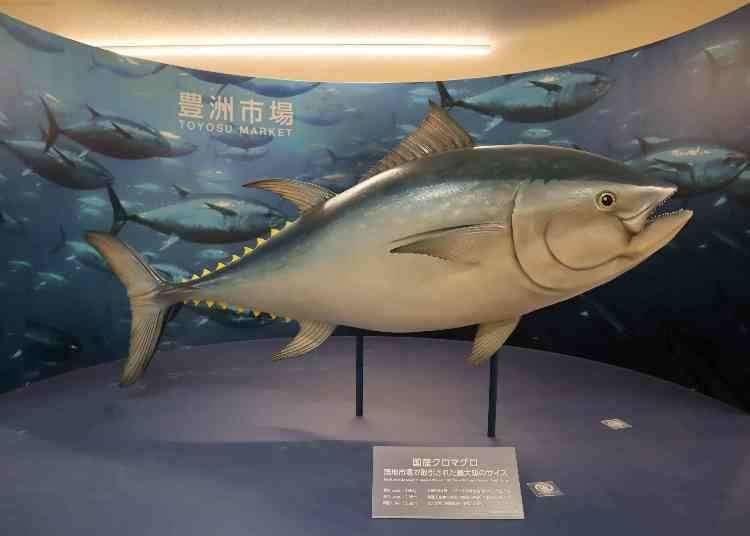
Many people are excited to visit Tsukiji fish market when they come to Tokyo, but did you know it’s moved to Toyosu? Although most restaurants shut up shop around 2pm, you could switch up your morning to hit up Tokyo's great new fish market instead. Just keep in mind that it's closed on Wednesdays and Sundays.
Day Three
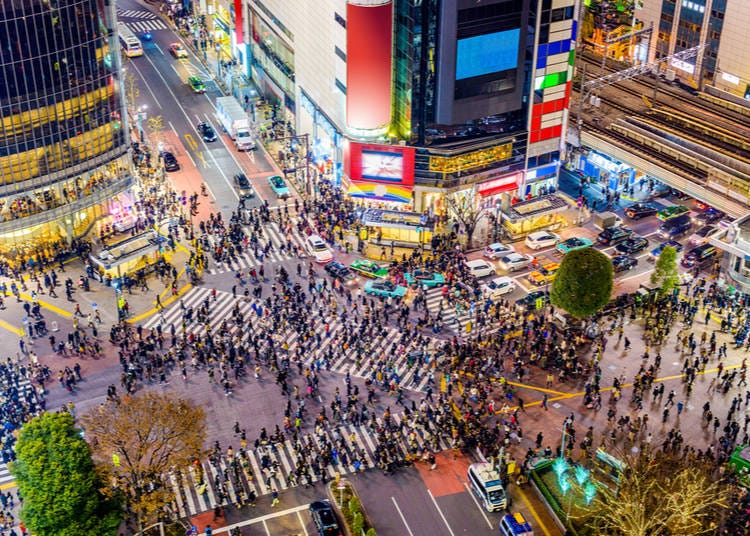
Your first port of call on day three is Shibuya, home of (arguably) the world's most famous intersection (the Ginza line will take you to Shibuya Station directly in 27 minutes from Ueno-Hirokoji Station). When you get to Shibuya Station, head for the 'Hachiko Exit', which leads to the intersection. Here swarms of pedestrians cross the road from every direction in a chaotic frenzy, once every couple of minutes when the traffic lights go red. There are numerous buildings peppered around the edges of the intersection, where you can get an excellent vantage point to watch the crossing in action over a cup of coffee, and with your camera in tow. It's a sight that never ceases to amaze.
Once you're ready to make a move, consider checking out some of Shibuya's retail outlets before lunch. There are options abound in both local and global brand names, with a Disney Store, 109 Boutiques, and a Don Quijote Megastore – specializing in super-cheap bric-a-brac items and miscellaneous goods (it's excellent for souvenirs) – operating as some of the fan favorites.
12.30 – 2pm (Lunch, Harajuku):
Assuming you've worked (or shopped) up an appetite, it's time to head over to Harajuku and its famous shopping street for lunch. There's a host of tasty street food and sweet options here; the crepes – both savory and less so – are particularly delicious. Plus, if you get something you can eat on-the-go you'll leave a little more time to peruse the goods in the numerous indie and vintage clothing stores.
2pm – 3pm (Yoyogi Park and Meiji Jingu):
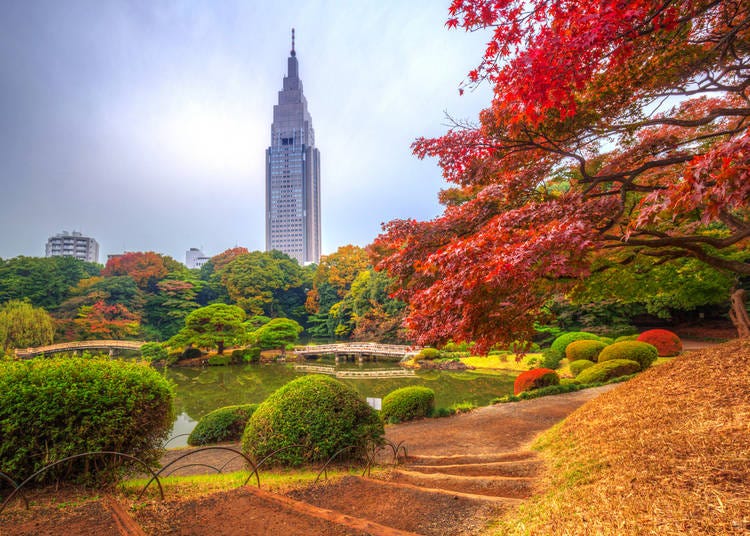
Next door to Harajuku sits Yoyogi Park, the largest public greenspace in Tokyo. Inside the park there is a vast treelined path leading to Meiji Jingu, one of the finest Shinto shrines in the country. The large temple and surrounding complex are dedicated to the deified spirits of Emperor Meiji and his wife, Empress Shōken.
3pm – 4.30pm (Animal Cafes):
Now for a slight change in scenery. Animal cafes are a wildly popular manifestation of Japan's quirky modern culture, and there are plenty of these to check out nearby. In Harajuku, Osamu Owl Café lets you sample a hot cup of joe in the company of owls (really), whereas the focus at Mameshiba Café is dogs. Mameshiba (literally "Bean" "Shiba") is filled with miniature Shiba dogs – one of the most common breeds in Japan – which can you can play with to your heart's content.
4.30pm – 5.30pm (Omotesando):
Omotesando is a short (approx. 10 minutes) walk from Harajuku. The main shopping street is lined with fashion boutiques and high-end global brands. The alleyways which feed off from the main avenue are filled with vogue indie clothes, second-hand stores and more great cafes. Plus, there's an Oriental Bazaar on the main shopping street selling all kinds of traditional Japanese goods; it's immediately recognizable due to its old-school architectural design, singling it out amid the illuminated glassy facades of the rest of the establishments.
5.30pm – 8pm (Dinner):
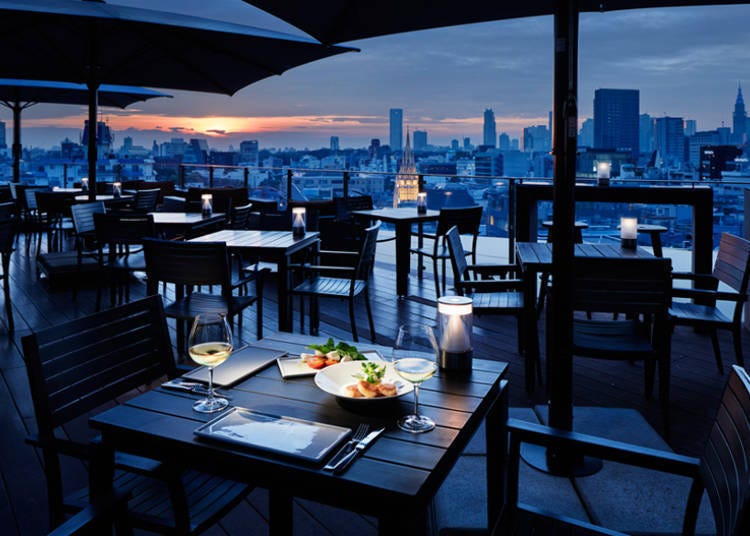
The Omotesando neighborhood has a pretty urbane vibe, which naturally lends itself to fine dining. There are some excellent restaurants in the area with skyline views and outdoor terraces, where you can dine by candlelight over a bottle of vintage red. Two Rooms Grill and Mercer Café are up there with the best.
8pm – Late (Karaoke):

You can't leave Tokyo without doing karaoke. There are sky-scraping karaoke chains all over the city, serving all-you-can-eat and drink options at very affordable prices (and they're open 24/7). We recommend heading back to Ueno first (quickest route: Omotesando Station to Yushima Station via Chiyoda line, then a 6-minute walk to Ueno). This means you won't have to concern yourself with the last train time, and can wobble home as and when you please. The Japanese katakana for karaoke is "カラオケ", you'll see this on neon signs racing up the sides of buildings on most streets in Ueno. The choice of where to go is in your hands!
However, if you get carried away and miss the last train, have no fear! The perfect plan for such a situation is right here.
Extra Ideas! (Mount Fuji and More)
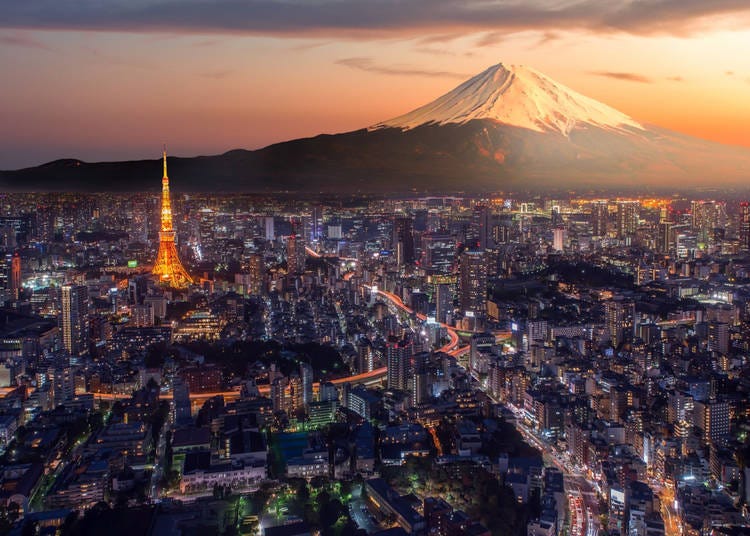
The preceding information can be followed down to a T, or used as a guideline for your trip; ultimately that's to be decided at your own discretion. But if you want to squeeze some other things into your Tokyo trip instead (or even after), here are some ideas:
・Mount Fuji: There are plenty of day trips to Fuji and neighboring Hakone which bring you to the fifth station of the nation's tallest mountain. They're an excellent option for those who don't have the time, nor inclination, for the hike.
・Other Day Trips: Mount Takao just to the west of Tokyo is a very accessible peak in the city's western suburbs (approx. 1 hour by train from Shinjuku). Nikko, an ancient town in the wooded hills of Tochigi Prefecture is another local favorite (approx. 90 minutes from Kita Senju, which is 4 stops from Ueno on the Hibiya line). And Kamakura, a seaside town home to the famous bronze Buddha is equally worthwhile (there's a direct train here from numerous stations in downtown Tokyo along the Shonan Shinjuku line).
・If you're going to another part of the country, head to Tokyo or Shinagawa Stations for Shinkansen heading south and west, or Ueno Station has some Shinkansen lines heading toward the northern reaches of Honshu.
Recommended Hotels in Tokyo
The following budget-friendly hotels are in excellent locations for this itinerary.
-

-
Address
3-17-5 Higashi Ueno, Taito-ku, Tokyo, 110-0015
View Map -
Nearest Station
Ueno Station (Hokkaido Shinkansen Line / Tohoku Shinkansen Line / Akita Shinkansen Line / Yamagata Shinkansen Line / Joetsu Shinkansen Line / Hokuriku Shinkansen Line / JR Keihin-Tohoku Line / JR Yamanote Line / JR Tohoku Main Line / JR Utsunomiya Line / JR Takasaki Line / JR Joban Line / JR Ueno Tokyo Line / Tokyo Metro Ginza Line / Tokyo Metro Hibiya Line)
4 minutes on foot
Vacancy search, reservation
-
from 10,890JPY 1room, 2adults
Check with our partner site as the latest rates, rate details, and guest room requirements may vary.
-
Address
3-17-5 Higashi Ueno, Taito-ku, Tokyo, 110-0015
-

-
Address
Shibuya-ku Motoyoyogicho 1-7, Tokyo, 151-0062
View Map -
Nearest Station
Yoyogi-Hachiman Station (Odakyu Odawara Line)
2 minutes on foot
Vacancy search, reservation
-
from 6,960JPY 1room, 2adults
Check with our partner site as the latest rates, rate details, and guest room requirements may vary.
-
Address
Shibuya-ku Motoyoyogicho 1-7, Tokyo, 151-0062
David is a Northern Irish freelance writer living in Tokyo. He loves living in Japan, reading about Japan, writing about Japan and eating Japanese food. He also spends a lot of time exercising, playing rugby and risking a litany of muscle-related injuries in yoga class.
- Area
- Category
*Prices and options mentioned are subject to change.
*Unless stated otherwise, all prices include tax.
Popular Tours & Activitiess
Recommended places for you
-
Ad

[Tokyo, Ueno] Journey to the Sacred Grounds of the Tokugawa Shoguns: Join the "EDO SHOGUN’S LEGACY TRAIL TOUR" – Where Special Access, Modern Art, and Digital Innovation Converge
by: Guest Contributor
-

This Winter, Godzilla Takes Over Haneda Airport
by: Guest Contributor
-

Japan’s Shinkansen Is About to Change Travel in an Unexpected Way
by: Guest Contributor
-

Make Your Japan Trip Unforgettable! Explore "OSHI MAP" – Now Free and Unlimited
by: Guest Contributor
-
Ad

Discover the "Miraculous Forest" in the Heart of Tokyo: The Institute for Nature Study (9 Minutes from JR Meguro Station)
-

New in Ginza! Air BicCamera Ginza Opens with a Faster, More Convenient Shopping Experience
by: Guest Contributor
Inspiration for Accommodations
-

Enjoy Mt. Fuji from the Comfort of Your Room! Recommended Ryokan with Mt. Fuji View
-

Stay Near the Cherry Blossoms! Hotels for Cherry Blossom Viewing in Tokyo
-

Family-Friendly Hotels with Free Shuttle to Disneyland: Convenient Access for a Magical Stay
-

Top Ranked Hakone Hotels with Mt. Fuji View: Enjoy Stunning Scenery from Your Private Space
-

Convenient Tokyo Hotels with Airport Shuttle: Ideal for Families and Heavy Luggage
-

Stunning Tokyo Tower View Hotels: Enjoy Spectacular Scenery from Your Private Space
-

Convenient Asakusa Hotels with Kitchens: Ideal for Extended Family Visits
-

Experience Luxury: Hakone's 10 Best Five-Star Accommodations
-

Enjoy Mt. Fuji Autumn Leaves! Top Hotels Near the Popular Autumn Leaves Corridor
-

Experience Hakone Fall Foliage from Your Room with Stunning Views
-

10 Important Japanese Phrases to Know Before You Enter a Japanese Convenience Store!
by: Teni Wada
-

Autumn in Japan 2025: Fall Foliage Forecast & Where to Enjoy the Colorful Leaves (+Tour Info)
-

Why These 20 Japanese Cities are Blowing up on Instagram
by: Lucio Maurizi
-

6 Surprisingly Cheap Things in Japan
-

Sights, Shopping & More: Fun Things to Do Near Shibuya Station
by: Cassandra Lord
-

What are Tokyo's Must-See Scenic Spots? Surprising Unusual Spots Chosen by 10 Foreigners
by: Ran Tanaka
- #best ramen tokyo
- #what to buy in ameyoko
- #what to bring to japan
- #new years in tokyo
- #best izakaya shinjuku
- #things to do tokyo
- #japanese nail trends
- #what to do in odaiba
- #onsen tattoo friendly tokyo
- #daiso
- #best sushi ginza
- #japanese convenience store snacks
- #best yakiniku shibuya
- #japanese fashion culture
- #best japanese soft drinks




















